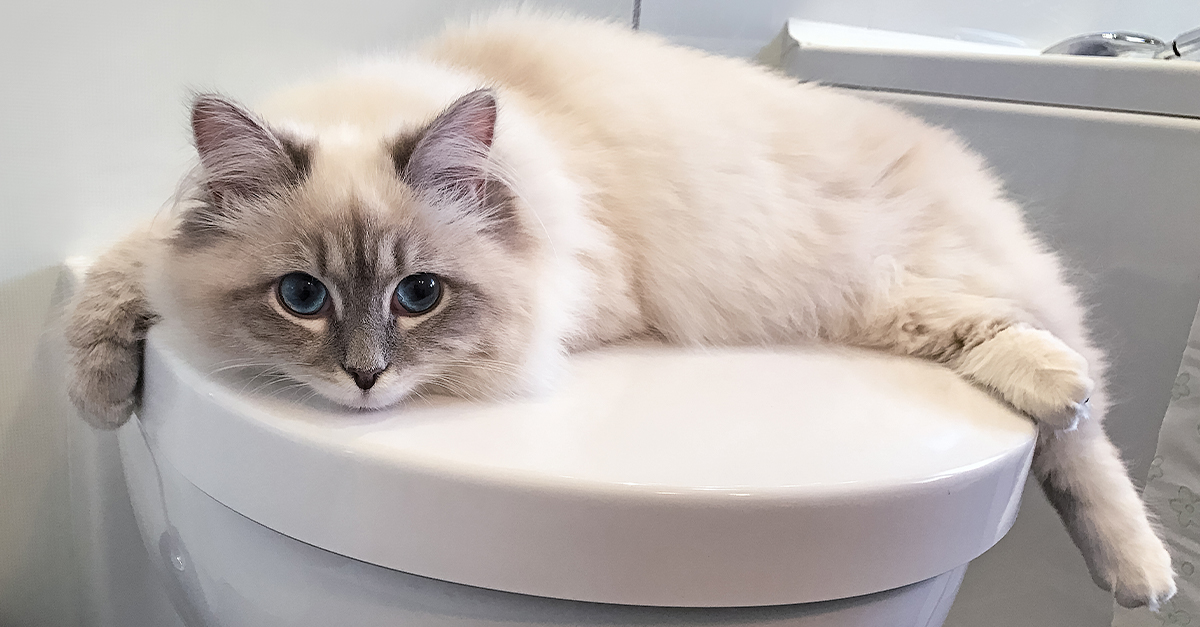Reasons Flushing Cat Poop Down Your Toilet May Cause Problems - Tips for Safe Disposal
Reasons Flushing Cat Poop Down Your Toilet May Cause Problems - Tips for Safe Disposal
Blog Article
Just about every person has their unique conception with regards to Don’t flush cat feces down the toilet.

Introduction
As feline owners, it's vital to be mindful of exactly how we dispose of our feline close friends' waste. While it might appear hassle-free to purge pet cat poop down the toilet, this practice can have destructive consequences for both the atmosphere and human wellness.
Alternatives to Flushing
Fortunately, there are safer and extra responsible ways to take care of pet cat poop. Consider the following options:
1. Scoop and Dispose in Trash
One of the most usual method of dealing with pet cat poop is to scoop it into a naturally degradable bag and throw it in the garbage. Make sure to make use of a specialized trash inside story and dispose of the waste immediately.
2. Use Biodegradable Litter
Go with naturally degradable cat trash made from products such as corn or wheat. These trashes are eco-friendly and can be securely taken care of in the garbage.
3. Hide in the Yard
If you have a backyard, consider burying cat waste in a designated area away from veggie yards and water sources. Make certain to dig deep sufficient to avoid contamination of groundwater.
4. Install a Pet Waste Disposal System
Invest in a family pet waste disposal system specifically developed for cat waste. These systems make use of enzymes to break down the waste, reducing smell and environmental impact.
Health and wellness Risks
Along with environmental problems, flushing cat waste can also posture health and wellness risks to people. Pet cat feces might have Toxoplasma gondii, a parasite that can cause toxoplasmosis-- a possibly serious health problem, specifically for expectant females and individuals with damaged immune systems.
Ecological Impact
Flushing cat poop presents damaging microorganisms and parasites into the water system, presenting a substantial danger to water ecosystems. These impurities can adversely influence aquatic life and compromise water high quality.
Conclusion
Responsible animal ownership prolongs beyond providing food and sanctuary-- it additionally involves proper waste management. By avoiding purging feline poop down the toilet and choosing alternative disposal approaches, we can lessen our ecological footprint and secure human health and wellness.
Why Can’t I Flush Cat Poop?
It Spreads a Parasite
Cats are frequently infected with a parasite called toxoplasma gondii. The parasite causes an infection called toxoplasmosis. It is usually harmless to cats. The parasite only uses cat poop as a host for its eggs. Otherwise, the cat’s immune system usually keeps the infection at low enough levels to maintain its own health. But it does not stop the develop of eggs. These eggs are tiny and surprisingly tough. They may survive for a year before they begin to grow. But that’s the problem.
Our wastewater system is not designed to deal with toxoplasmosis eggs. Instead, most eggs will flush from your toilet into sewers and wastewater management plants. After the sewage is treated for many other harmful things in it, it is typically released into local rivers, lakes, or oceans. Here, the toxoplasmosis eggs can find new hosts, including starfish, crabs, otters, and many other wildlife. For many, this is a significant risk to their health. Toxoplasmosis can also end up infecting water sources that are important for agriculture, which means our deer, pigs, and sheep can get infected too.
Is There Risk to Humans?
There can be a risk to human life from flushing cat poop down the toilet. If you do so, the parasites from your cat’s poop can end up in shellfish, game animals, or livestock. If this meat is then served raw or undercooked, the people who eat it can get sick.
In fact, according to the CDC, 40 million people in the United States are infected with toxoplasma gondii. They get it from exposure to infected seafood, or from some kind of cat poop contamination, like drinking from a stream that is contaminated or touching anything that has come into contact with cat poop. That includes just cleaning a cat litter box.
Most people who get infected with these parasites will not develop any symptoms. However, for pregnant women or for those with compromised immune systems, the parasite can cause severe health problems.
How to Handle Cat Poop
The best way to handle cat poop is actually to clean the box more often. The eggs that the parasite sheds will not become active until one to five days after the cat poops. That means that if you clean daily, you’re much less likely to come into direct contact with infectious eggs.
That said, always dispose of cat poop in the garbage and not down the toilet. Wash your hands before and after you clean the litter box, and bring the bag of poop right outside to your garbage bins.
https://trenchlesssolutionsusa.com/why-cant-i-flush-cat-poop/

Do you really like reading about Can You Flush Cat Poop Down The Toilet?? Place a remark down below. We will be delighted to find out your responses about this posting. We are looking forward that you come back again in the future. Liked our entry? Please share it. Help others discover it. I truly appreciate reading our article about Can You Flush Cat Poo or Litter Down the Toilet?.
Automated Marketing Report this page